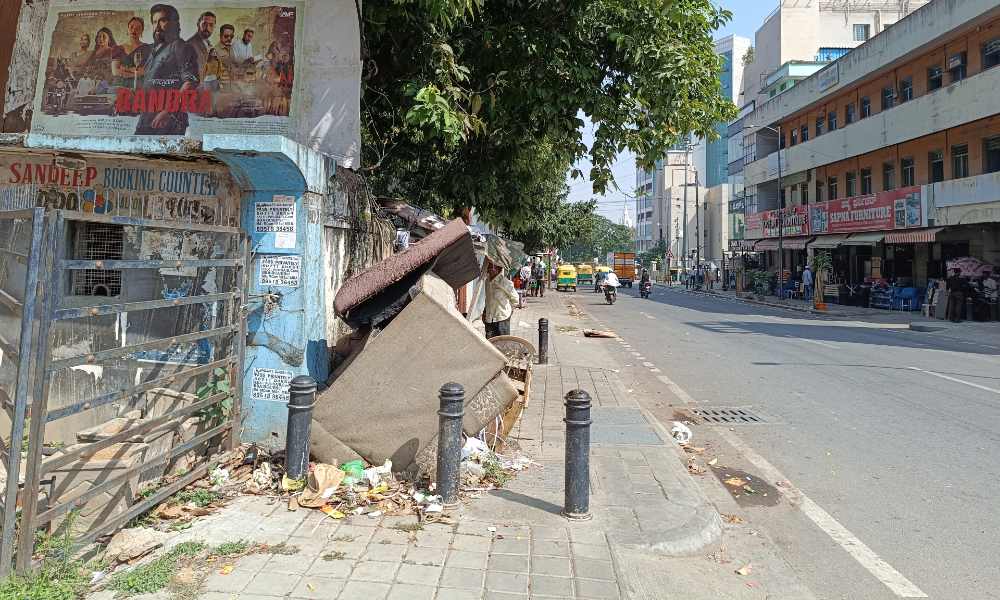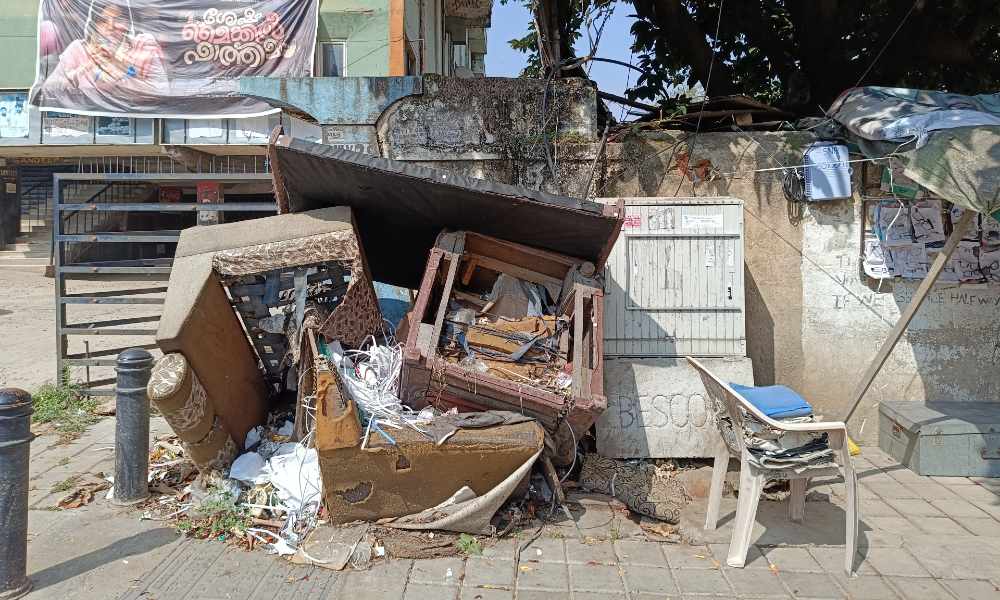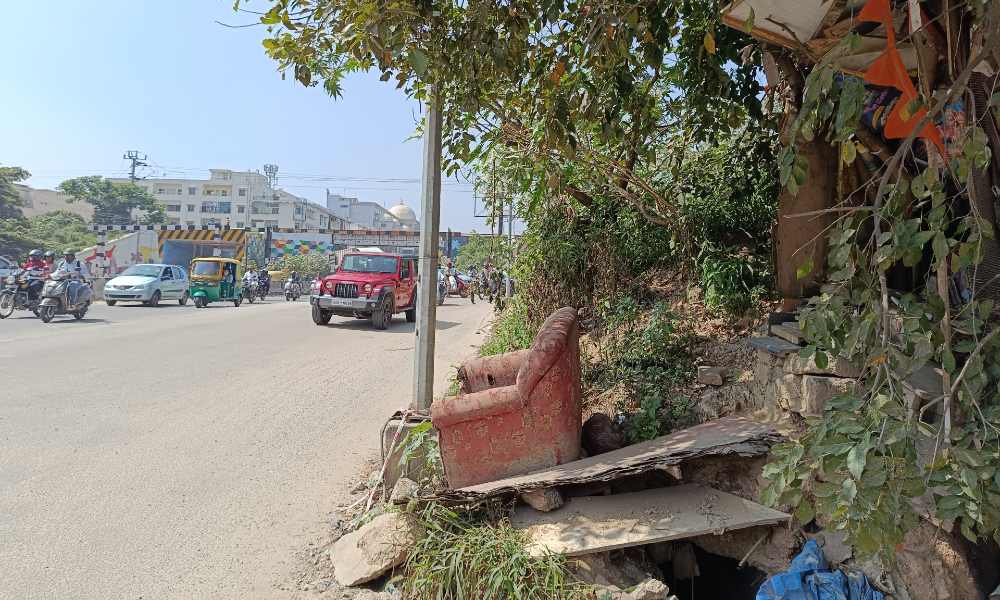Experts call for increased awareness among citizens about proper furniture disposal practices and stricter enforcement by authorities to resolve this issue.
The disposal of old furniture along the pavements of Central Street, Shivajinagar has raised concerns regarding hygiene and the overall ease of commuting in the area among citizens. This practice is not confined to Central Street alone; similar occurrences have been noted in Benniganahalli as well where old furniture can be seen disposed of on the roadside.
Mahesh, a working professional, said, “It has always been difficult to walk on this stretch of Central Street due to encroachments by furniture shop owners who have expanded their stores onto the pavements. The dumping of old furniture on the pavements has now worsened the situation and has forced us to walk on the road.” Pavements are intended to provide a safe and unobstructed pathway for pedestrians, and not to become stumbling blocks cluttered with furniture and waste, he added.

Ahmed, the owner of an optical shop on Central Street, pointed out that it is usually the furniture shop owners in the area who discard their old furniture on the streets. “Instead of dumping it near their establishments, they would rather dump it near mine or any other shop. This creates an undesirable working condition for me and discourages my potential customers,” he said. The situation worsens during rainy season when the stench intensifies, accompanied by concerns about the insects and stray animals the waste may attract, he added.
“The furniture waste, which usually includes sofas, wooden planks, and mattresses, once dumped, tends to stay there as the Bruhat Bengaluru Mahanagara Palike (BBMP) does not actively address furniture waste collection,” he said. One has to call scrap dealers or pay BBMP waste collectors to remove the discarded furniture, he added.
Anand, a furniture store owner at Central Street, agreeing with Ahmed, said that while he relies on scrap dealers for the disposal of his old furniture, some shops in the area dump it on the streets at night. He attributed this to the reluctance to pay the fees demanded by the BBMP waste collectors for furniture removal. “Nobody wants to pay out of their pocket to remove waste from the streets, so it continues to stay there,” he said.

Azeem, an official from the Solid Waste Management Department (SWM) of BBMP, clarified that the process for furniture collection is not a cost-free service. “Furniture falls under the category of construction and demolition waste (C&D), which is managed by authorised contractors responsible for waste collection,” he said. Individuals who wish to dispose of furniture or similar waste can contact BBMP. The charges for this service are determined in advance by the BBMP based on the weight of the waste, he said. “Once collected, the waste is directed to private recycling plants situated in Yelahanka, Jigani, JP Nagar, and Dasarahalli,” he said.
Bulk or commercial waste generators who dump solid waste in public spaces can face fines up to Rs. 25,000, according to the BBMP circular, he said. However, he said that enforcement proves challenging, as these activities often occur during the night or when public observation is minimal. He also encouraged citizens to proactively report instances of illegal waste disposal to BBMP. “This can be done by reaching out to the ward Junior Health Inspector (JHI) or contacting BBMP’s complaint cell,” he added.

Dr. M. Lokeshwari, Associate Professor, Department of Civil Engineering (Environmental Engineering) at R.V. College of Engineering, said that while disposing of wooden furniture in open areas may initially seem harmless, the long-term ecological impact becomes evident as it decomposes, attracting stray animals and creating hygiene concerns for those in the vicinity. She said that citizens should rely on scrap dealers or use BBMP waste collection services to dispose of their old furniture rather than resorting to illegal dumping. She also emphasised the need for awareness among citizens regarding BBMP bye-laws that mandate the payment of a solid waste management cess and service charge for waste collection. “Citizens must understand that charging a fee for specialised waste collection, such as furniture, beyond the regular fee, is legal,” she said.
In addition to the responsibility of citizens, she highlighted the importance of authorities taking stringent measures to deter furniture waste dumping. “This includes imposing fines and issuing notices to offenders directing prompt waste clearance,” she said. She also suggested the establishment of exchange centres within the city where individuals can donate not only old furniture but also clothes and surplus edible items that are in usable condition. “This will not only reduce the waste generated but also serve as a valuable resource for those in need, promoting a more sustainable and compassionate community approach,” she said.




